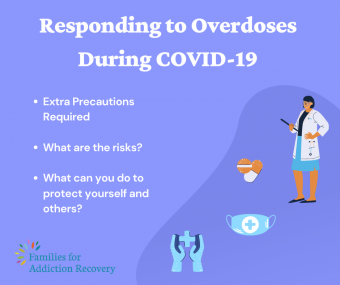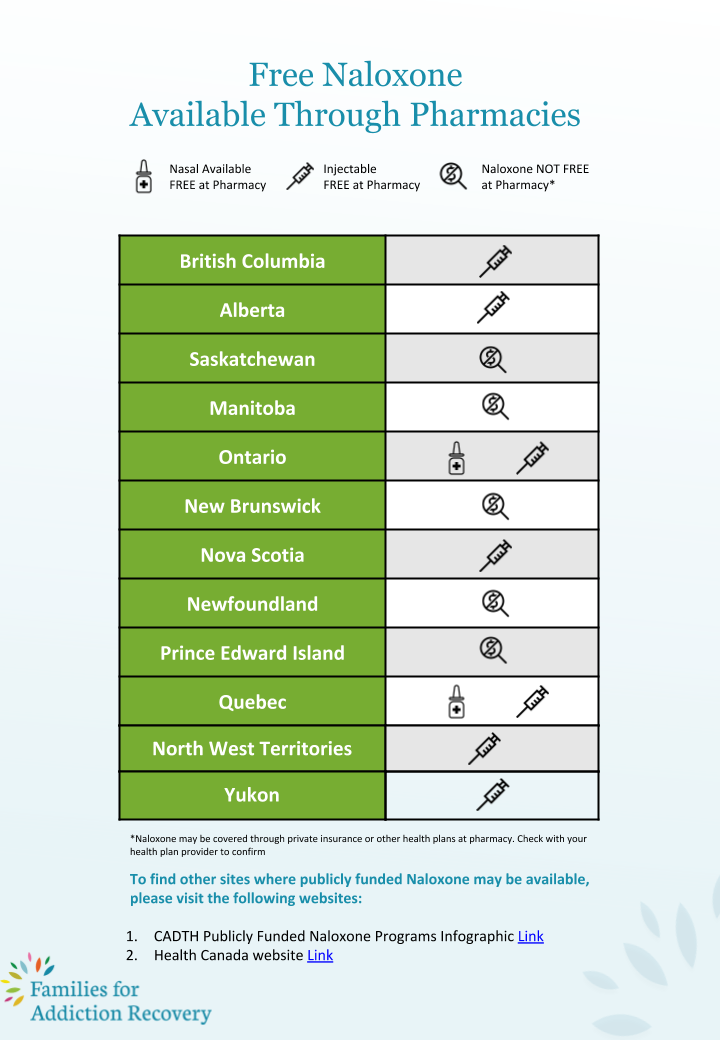Everyone who uses opioids (like oxycodone, morphine, fentanyl, methadone or heroin), or has a friend or family member who uses opioids, should have a naloxone kit. Opioids depress (slow down) breathing. If someone uses too strong a dose of opioids at one time, or uses them with other depressant drugs like alcohol or benzodiazepines, they can overdose, lose consciousness, stop breathing and die.
Naloxone saves lives by reversing an overdose. It strips opiates off the opioid receptors in the brain and restores breathing. However it often needs to be administered more than once. Always call 911.
Sometimes people are afraid to call 911 because they think they will be charged. Police departments are increasingly adopting policies not to respond in overdose situations unless there is an issue of safety. Further, Canada has passed the Good Samaritan Drug Overdose Act to protect persons from being charged for drug possession for personal use and certain related offences in these situations.
Naloxone is now available in Canada without a prescription. It is an injectable drug but Health Canada recently approved the nasal form of naloxone which is easier to administer.
Sometimes family members have assumed that their loved one is sleeping when they are actually experiencing an overdose. Your loved one’s life can depend on you knowing the difference between sleeping and a potentially deadly overdose.
Click here for the signs of an opioid overdose and here for how to respond.
The Naloxone Saves Lives video under Participant Training on the Toward the Heart Website of the BC Centre for Disease Control explains what you need to know about overdose and administering naloxone (also known as Narcan).
Alcohol poisoning (an overdose of alcohol) has similar symptoms and is also life threatening, especially in young people who have never used alcohol before. While naloxone will not help for alcohol poisoning, if there is any chance the unconscious person has taken an opioid, knowingly or not, Naloxone should be given.
In every overdose situation, if the unconscious person is still breathing, they should be put in the recovery position to ensure they won’t choke if they vomit and their situation should be monitored (don’t leave them alone). Always call 911.
Responding to an Overdose During COVID-19
Extra precautions must be taken when responding to an overdose during COVID-19. Your willingness to take risks in responding to an overdose may depend on who is overdosing, a family member, friend or someone you don’t know. Make sure you have a couple Naloxone kits (injectable Naloxone is preferable to nasal Naloxone) and that you keep a couple face masks with your Naloxone kits. This flyer sets out the risks and guidelines on how to respond.

